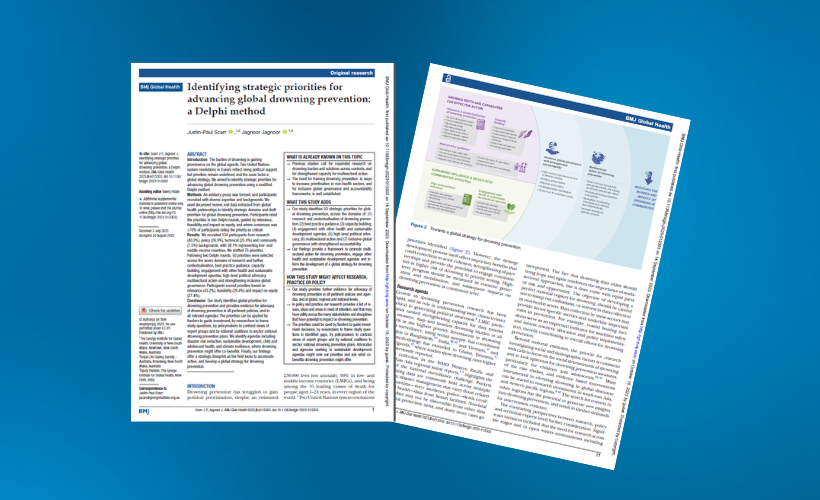Published 17 October 2023

While drowning prevention is well supported by governments across Australia, it is only recently gaining attention on the global health and sustainable development agenda.
A United Nation General Assembly Resolution (2021), and another at the World Health Assembly (2023) signal rising political support.
The study published in BMJ Global Health by Royal Life Saving CEO Justin Scarr and Assoc Professor Jagnoor Jagnoor of The George Institute for Global Health sought to identify the strategic priorities for advancing global drowning prevention.
The study titled ‘Identifying strategic priorities for advancing global drowning prevention: a Delphi method’ formed an advisory group and recruited 134 experts from 46 nations with diverse expertise and backgrounds with almost 40% representing low- and middle-income countries.
Following two Delphi rounds, where experts rated draft priorities as either critical, moderate, or low importance, 50 strategic priorities were selected.
The top three priorities called for 1) the development and implementation of systematic approaches to teaching children swimming and water safety skills, 2) strengthened drowning data systems to measure and monitor drowning burden at all levels, and 3) increased funding for drowning prevention advocacy, research, policy, and implementation.
The study is open access, and the full list of strategic priorities is available here:
https://gh.bmj.com/content/8/9/e013303
The study has many applications and may inform the development of a global strategy for drowning prevention, announced by WHO recently.
The priorities can be used by funders to guide investment, by researchers to frame study questions, by policymakers to contrast views of expert groups and by national coalitions to anchor national drowning prevention plans.
The study reinforces the importance of building multisectoral partnerships for drowning prevention, especially with disaster risk reduction, sustainable development, child and adolescent health, and climate resilience sectors.
The study is timely, given that global experts will soon gather in Perth for the World Conference on Drowning Prevention (4-7 December 2023).
